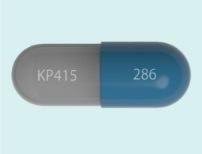Celecoxib has been developed as an effective treatment for arthritis and is particularly indicated in situations such as osteoarthritis, rheumatoid arthritis. Research suggests 600 milligrams per day is a standard dose that results in pain relief for the majority of osteoarthritis patients -- about six out of every ten – split into two or three doses. In the treatment of rheumatoid arthritis, doses are usually 100 mg to 200mg twice daily and improvement in joint pain swelling, and stiffness can be seen from a few weeks after use up to about forty percent.
The drug targets an enzyme called COX-2 that makes inflammatory prostaglandins, a molecular mechanism believed to be responsible for causing pain and swelling in arthritic joints. A meta-analysis of multiple clinical trials confirmed that celecoxib inhibits COX-2 while sparing COX-1, unlike older NSAIDs, reducing GI side effects by about 50.
In a 12-week trial among more than 13,000 patients with knee or hip osteoarthritis followed up to find out who was ultimately prescribed celecoxib vs placebo -- the Celebrex group had pain scores drop by only 36% but they were still found significant! In addition, patients reported a better quality of life which included significant improvement in mobility and decreased pain during daily activities. This makes celecoxib an excellent choice for individuals who need long-term arthritis therapy but are at risk of important GI toxicity.
 Dr. James Turner, a rheumatologist, said: "Celecoxib is still important in the arthritis armamentarium for many patients who cannot tolerate or have not responded well to other NSAIDs [nonsteroidal anti-inflammatory drugs], particularly if they are elderly and at modest GI risk. His remark reflects the opinion of much of the larger medical community that celecoxib may be a safer choice in people who require along anti-inflammatory therapy.
Dr. James Turner, a rheumatologist, said: "Celecoxib is still important in the arthritis armamentarium for many patients who cannot tolerate or have not responded well to other NSAIDs [nonsteroidal anti-inflammatory drugs], particularly if they are elderly and at modest GI risk. His remark reflects the opinion of much of the larger medical community that celecoxib may be a safer choice in people who require along anti-inflammatory therapy.
Moreover, celecoxib acts in such a way that it does not just recover pain but also helps preserve the joint function over timePain reductions of about 25% are obtained and recovery from early morning stiffness is attained after treatment with this selective drug for patients suffering rheumatoid arthritis. This balancing act between efficacy and safety allows it to be a first-line choice in cases where management of chronic pain is as important as maintaining gastrointestinal tolerance.
Nevertheless, patients should be informed of possible cardiovascular risks, especially at higher doses (400 mg daily or more), given a small increase in risk for some events found from studies. Thus highlighting the need for judicious dosing and close clinical monitoring especially in patients with a history of cardiovascular diseases.
It is clear from here that those wanting to know about the use of celecoxib used for in management arthritis, has proven a strong player as it provides pain relief; better joint functions and low risk of GI complications which makes them a reliable option for long-term management.